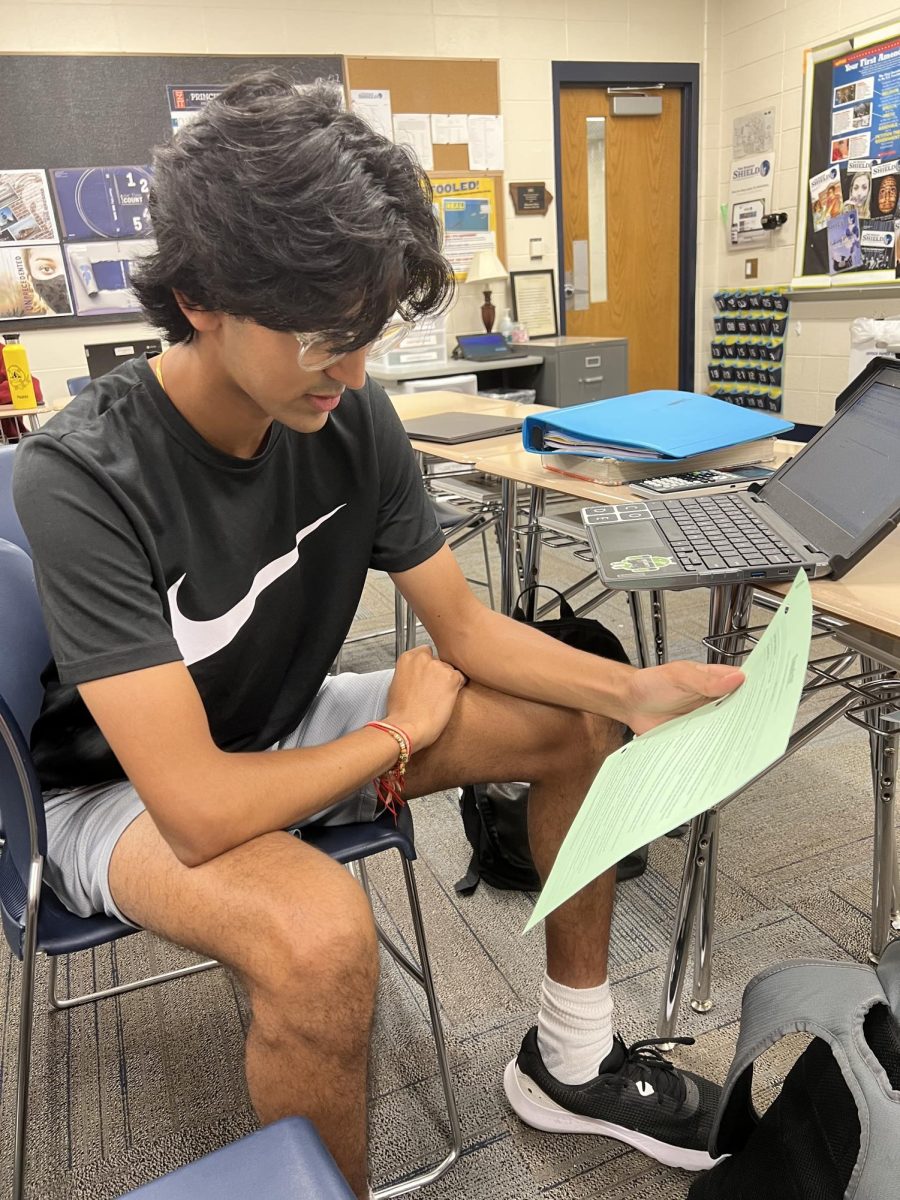During recent years, the percentage of students who are receiving lower grades are rising. A large majority of these students tend to turn in their work late, often facing a penalty and losing points for lateness.
This ties back to their grades and takes a huge toll over time, making grades fall to D’s and F’s. After seeing the detrimental effects of failing grades, many high schools nationwide are starting to change their grading and late work policies to accommodate students who received a deduction in points for lateness.
Arlington Public Schools have implemented a new grading system for their students which started in July this year. The program will motivate students to further their learning and give students a chance to redeem themselves. In order to accomplish this goal, the superintendent at Arlington Public Schools has made the decision to allow students to retake assignments and has reduced the overall weight of quizzes and their impact on grades.
English teacher Lynne Lundberg grades her students based on what class is being taught. “Grades that are entered into the gradebook ought to depend on the class, so there is no one right answer and not common throughout all my classes. For example, Public Speaking relies heavily on speeches while Humanities rely heavily on tests because there are facts to know and ideas to incorporate,” Lundberg explained.
This way, students can focus on truly understanding the concepts taught in class to a greater extent rather than simply studying for a test and forgetting about it later. Instead, teachers will grade students based on whether or not they demonstrate a higher level of understanding and performance.
These policies also line up with that of our own school. New school Principal Mike Hawley believes it is important to have a balance between having students understand topics covered in teachings and performance in assignments. “In an ideal world, we would create a class where the work is engaging in itself so that students are working hard to learn the material and therefore do well on the assessment at the end,” Hawley describes.
The superintendent at Arlington also experimented with the school’s late policy. Homework that is turned in late will only be penalized by ten percent, making it worthwhile to still finish the assignments even after the due date has passed. This ensures that students are still motivated to do well in school and can work towards the school’s goal of having their students more engaged during their studies.
Hawley hopes that students at Pleasant Valley also feel inspired to do well in school and drive to understand subjects. “Do we want students motivated to get their work done, yes. Do all students work at the same pace, no, nobody does. So deadlines, though needed, aren’t necessarily the most efficient way to find out if someone has learned something, so you need to balance those things out and figure out the best way to move forward,” Hawley shares.
Another school district that changed their grading policies is the Boise School District. The school decided to give students a two day grace period for missing assignments caused by absences. Students who simply missed the deadline will be expected to turn in their tasks 2 weeks before the quarter ends. The school district is also willing to allow students to reassess on tests in which they have not demonstrated proficiency within 5 school days.
This also eases out the tension on teachers as they have a little more leisure regarding grading responsibilities and can avoid grading everything at once and risking the possibility of missing specific points in a student’s work which overall will help the student to learn topics
Lundberg previously experimented with her own late work policy, making a balance between student and class needs. “Late work policies always need to balance the needs of the student, the requirements of the class, and the needs of the teacher. However, if there are no penalties at all for no late work, deadlines become completely meaningless and students will turn in all their work at the last minute, which can become overwhelming for the teacher trying to meet their deadlines,” Lundberg concludes.
Just like students, teachers also must finish grading all their assignments on time in order to upload them to the gradebook. When students turn in all their work late due to no penalty for late work, teachers will need to spend more time at once rather than throughout the entire quarter or semester.
In a study done by the Massachusetts Institute of Technology, students were given the ability to choose between set deadlines and free choice deadlines, in which 48 students chose the set deadlines while 51 students chose the free choice deadlines. Both groups were given regular assignments and assessments at the end of units, with the only difference being when everything was due in regard to their final exam.
At the end of the study, the students who were given deadlines performed better overall, partially due to the fact that they were able to revisit the content periodically rather than all at the last minute. This relates to how students in high school also function, with a majority of people cramming at the last minute just to receive a high test score rather than truly grasping the ideas taught.
Schools around the nation are slowly but surely improving their late work and grading policies to better fit the needs of students, as not everyone learns at the same rate. Still maintaining deadlines to ensure that students are visiting the content periodically, schools are improving towards their goal of having students understand the material.









